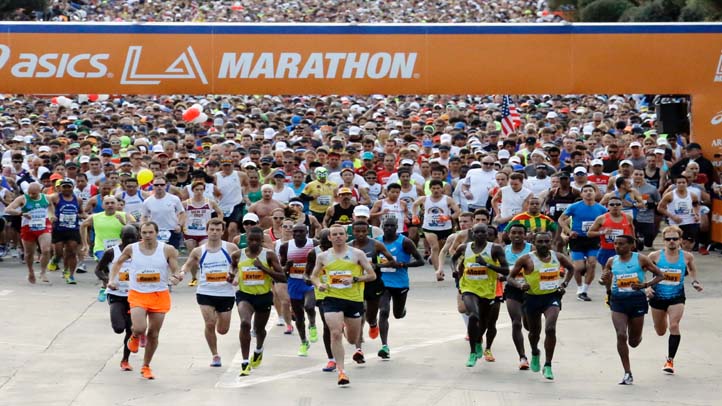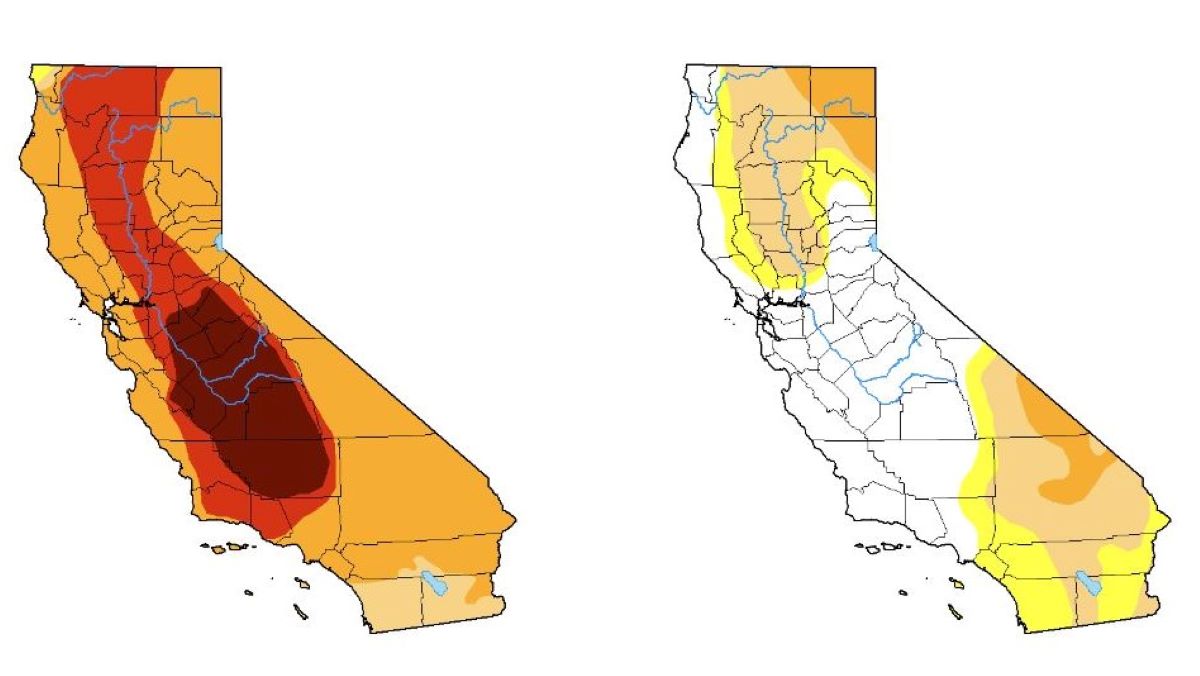A break between storms ends Sunday when a weak system enters Southern California.
What does that mean for the LA Marathon?
Get top local stories in Southern California delivered to you every morning. Sign up for NBC LA's News Headlines newsletter.
Participants and fans lining the 26.2-mile Stadium to the Stars course can expect clouds, cool temperatures and a chance of light rain and drizzle throughout the day.
“Really nothing that’s going to accumulate too much, but if we get a rain drop or two don’t be surprised,” said NBC4 forecaster Shanna Mendiola.
The LA Marathon begins at 7 a.m. at Dodger Stadium. The course visits several LA neighborhoods as it winds through Hollywood and ends in Century City.
Sunday’s system sets the stage for a much stronger storm during the week. Light rain arrives Monday — the official start of Spring — before heavier rain on Tuesday and Wednesday. Expect moderate to heavy rain Tuesday afternoon that lingers into Wednesday.
Preliminary Rain Totals
- Coast and Valleys: 1 to 3 inches
- Foothills and Mountains: 2 to more than 3 inches of rain
“This system is going to be colder and bring a significant amount of rain and mountain snow,” Mendiola said.
Snow levels are expected to drop to 3,000 feet late Tuesday and down to mountain pass level Wednesday morning. Two inches of snow are possible on the Grapevine section of the 5 Freeway in northern Los Angeles County.
“I know it’s been a pretty busy season so far, but you can bet this is going to help with our drought conditions,” Mendiola said. “We’ve already seen significant improvement.”
A large swath of California's agricultural Central Valley is no longer in drought after a series of atmospheric river-fueled winter storms that brought rain and snow over the past two months.
At the start of the water year in late September, the Central Valley was one of several regions facing extreme to exceptional drought, the two most severe drought categories in the weekly U.S. Drought Monitor report.
But the most recent report issued Thursday shows a stark contrast.
Thirty-six percent of the state is in moderate drought, the least severe of the weekly report's four drought categories. At the start of the water year in late September, that figure was at 99.76 percent.
Only 8 percent of California is in severe drought, a significant improvement from 93 percent at the start of the water year.
The most recent Drought Monitor report includes data available up to the morning of March 14, so it does not account for precipitation recorded on the remainder of Tuesday and Wednesday. Precipitation from that storm will be included in next week's report.



